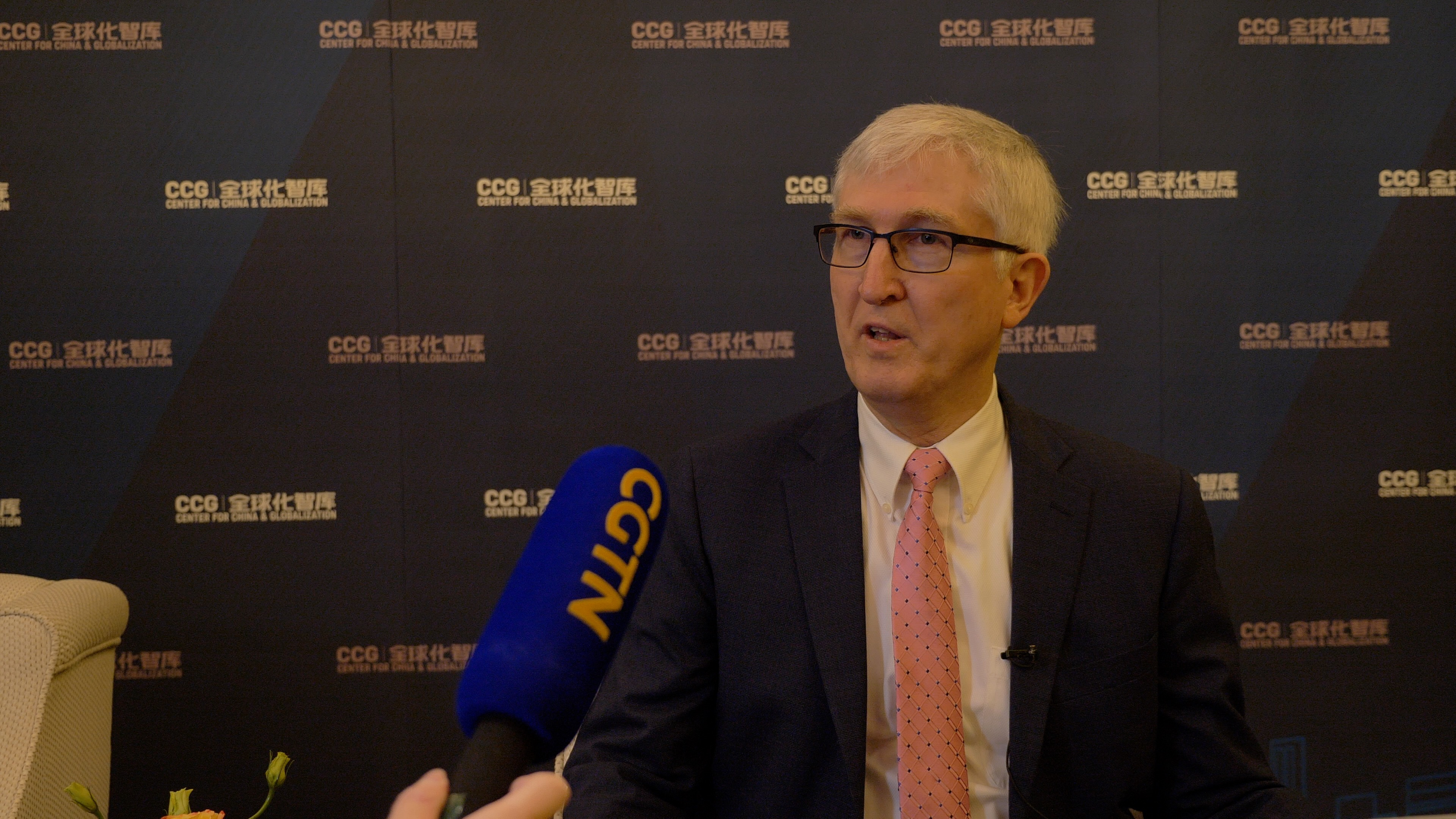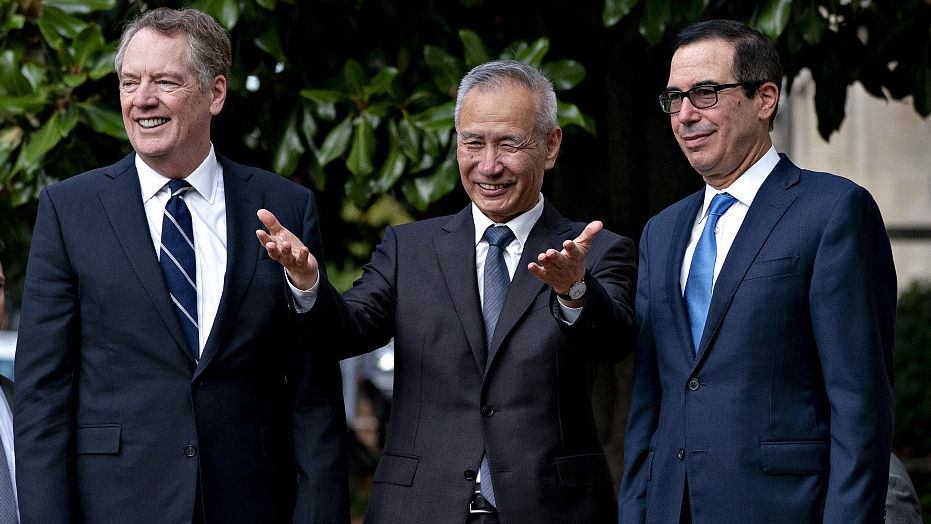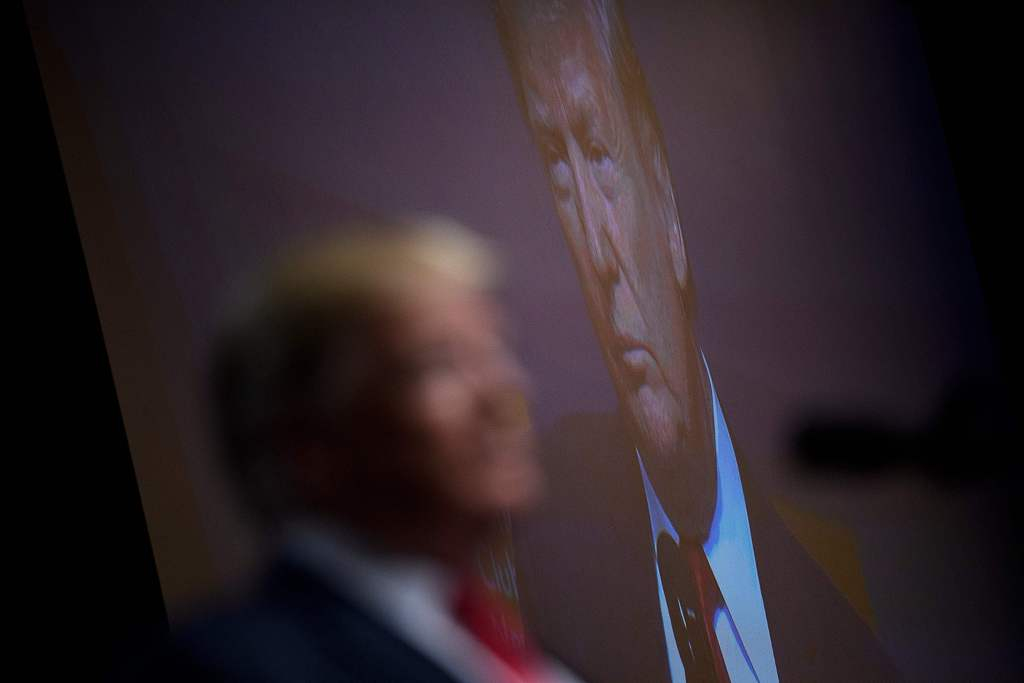02:58

Chinese Vice Premier Liu He on Saturday discussed trade issues with U.S. Trade Representative Robert Lighthizer and U.S. Treasury Secretary Steven Mnuchin during a phone call, talking about each other's concerns over the phase-one trade deal.
It's been a month of headlines consisting of multifarious speculations over when, where and how the phase-one deal will be signed after Chile canceled the APEC summit where the signing was scheduled to take place.
In a recent speech, U.S. President Donald Trump said the agreement "could happen soon" while reiterating the threat of more tariffs. Days later, his economic aide Larry Kudlow said no precise date was set. Across the pond, China requested a rollback of existing tariffs. Meanwhile, guesses of possible venues for the signing range from the U.S. farm state of Iowa to Switzerland to London.
Amid the lengthy, seesaw entanglement, will the phase-one deal, once signed, serve as the beginning of the end to the 19-month-long saga? Or is it just another detente in an endless, all-front confrontation? What's really going on between the world's two largest economies?
CGTN reporter Wang Xiaonan put these questions to Tim Stratford, chairman of American Chamber of Commerce in China, on the sidelines of a business forum hosted by the Center for China and Globalization.
The following are excerpts from the interview, which has been edited for clarity.

Chinese Vice Premier Liu He (C) with U.S. Trade Representative Robert Lighthizer (L) and U.S. Treasury Secretary Steven Mnuchin, at the Office of the U.S. Trade Representative in Washington, D.C., U.S., October 10, 2019. /VCG Photo
Chinese Vice Premier Liu He (C) with U.S. Trade Representative Robert Lighthizer (L) and U.S. Treasury Secretary Steven Mnuchin, at the Office of the U.S. Trade Representative in Washington, D.C., U.S., October 10, 2019. /VCG Photo
CGTN: What do you think of the first-phase trade deal proposed last month?
Stratford: I have mixed feelings about it. On the positive side, it's very good that our two countries are getting very close to an agreement, and hopefully this agreement will give us some positive momentum moving into the next phase, and also hopefully it will stop the two countries from imposing more tariffs and more retaliation.
The thing that I'm concerned about is that once we've concluded the phase-one agreement between the two countries, how are we going to make progress on phase two because it seems that we're keeping the harder issues for the next phase.
CGTN: Since most of it is about Chinese bulk purchase of American farm products, do you think it's mainly serving the 2020 presidential election?
Stratford: I think that this step can be helpful for the president's reelection, but from a traditional trade point of view – I used to be a U.S. trade official – what we normally try to do is create the right market conditions, and then let the markets decide what to trade.
Hopefully the market conditions are such that – you know, U.S. farm products are already very competitive – and hopefully, if we have normal market conditions, the U.S. would be able to sell a lot of agricultural products and that would be a good example of the principle of comparative advantage because that's something that we happen to be good in, and that's something that China has a need for.

Soybeans stand in a field during a harvest in Tiskilwa, Illinois, U.S., September 18, 2018. /VCG Photo
Soybeans stand in a field during a harvest in Tiskilwa, Illinois, U.S., September 18, 2018. /VCG Photo
CGTN: The Federal Reserve has already cut interest rates twice this year, walking a line similar to 2008 when the financial crisis broke out. The U.S. manufacturing industry is also taking a hit with PMI tanking to the lowest in months. Are they signs that the U.S. economy is slowing down and approaching a recession?
Stratford: I think that we're getting a lot of mixed signals on the economy, and the trade war is certainly having an impact because one thing business people don't like from any country is uncertainty. If there's uncertainty, then you hesitate to make new investments and sign big contracts. If you hesitate to do that, then that can slow down economic growth.
So I think that's part of it. And around the world, a lot of people are looking at some restructuring that may need to take place.
CGTN: What do you think of the Chinese economy? How is it faring now that its GDP growth has sunk to a 27-year low of six percent?
Stratford: The Chinese economy has of course performed extremely well. I've been in China since 1982, and the changes from 1982 till today are incredible. I don't think that any country has grown as rapidly on such a large scale in the world history as China has in the last 37 years when I've been here.
If you look at Beijing now, almost every building that you see was not here. When we first came here, everybody was riding bikes. I remember that the workers in the hotel where we lived made about 25 yuan a month for their income. And now you look at the income level and education level – it's really remarkable.
But I think that even in China, there are some limitations and some adjustments that need to be made. We're entering a period when there are going to be some adjustments around the world.

U.S. President Donald Trump at the Economic Club of New York, in New York, U.S., November 12, 2019. /VCG Photo
U.S. President Donald Trump at the Economic Club of New York, in New York, U.S., November 12, 2019. /VCG Photo
CGTN: Could you paint a picture of future China-U.S. ties? What are the possible ways for both sides to solve the unfolding discord?
Stratford: The two largest economies, the two most powerful countries – they have to deal with each other. We can choose to deal with each other in a very mature and responsible way, or we can choose to deal in ways that are not so optimum. But I think the vast majority of people in both countries want our two countries to have a good relationship, and we want to come up with new ways of solving problems that will allow the scope of our relationship to be as broad and as deep as possible.
One thing that we need to do is that we need to have clear policies toward one another, and we need to articulate them clearly, and we need to follow them consistently. I think we need to establish greater trust by talking about our differences and our intentions – and we need to be able to develop ways of resolving them without conflict.
CGTN: What role do you play in bridging China and the U.S.?
Stratford: I often go back to Washington and meet with my old friends who are now senior U.S. government officials. When I'm back there, I try to help them understand how people in China and Chinese leaders may look at certain questions. And when I come here, I try to help people understand how Americans may look at certain questions. I think the first step for developing more trust and solutions to our problems is understanding the other side and what their point of view is because I often see that sometimes things are misinterpreted, and people may get angry at things that were not intended to be hostile or adverse. But I think there are a lot of ways where our two countries need to put a lot of effort into understanding each other better.
Videographer: Zhang Wanbao
Video editor: Wang Yulian